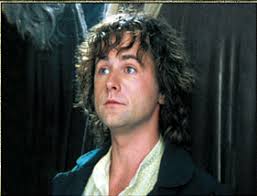Assignment: Develop character arcs within a project that you're working on, or start a story with the character arcs we made during the meeting. (Not to be reviewed next week)
We went over our emotional sketch assignments from last week, and we learned a little bit more about short-short fiction. (Insert "Who writes short-shorts? We write short-shorts!" joke here.) It didn't get too much focus but the idea of themes and dichotomies becomes more poignant, as it would in poetry. In Jn's work that looked like light/dark, in Mandy's it was up/down. We can add another layer of meaning by intentionally weaving these threads together. In a work that can be read two or three times in a sitting, those extra layers start to come out.
We read "Orange" a creative little Scifi story Jn found in an "In Flight" magazine (good snag!) that showed us a little different perspective on the dialogue exercise we did by using the format of an interview with just the answers.
Character Arcs:
Then we talked about Character arcs, based on this podcast from the guys at writing excuses
http://www.writingexcuses.com/2010/10/31/writing-excuses-5-9-character-arcs/
These are the stories of each individual character within a story, and in every great work of literature, there are compelling characters, and the reason why they those characters are compelling is that they (almost always) have their own compelling arcs within the larger story.
We talked about the 3 act structure, which provides a framework for planning out how the conflict will happen within the character's life (and within the story as a whole). Introduce the character's status quo, upset the status quo, resolve to new status quo. (if they can get back to the old status quo, the upset wasn't big enough)
Example: Pippin Took
Introducing Pippin
A bumbling Hobbit who just wants to help Frodo and often doesn't understand the danger he's in.

The Status quo gets upset
Carelessly follows (or just bumbles) into riskier and riskier situations (Old Man Willow, Moria, Uruk Hai, The seeing stone) and barely makes it out with his own skin with significant help from others (perhaps showing just how unprepared he is for all this). Never really makes many decisions, just along for the ride, causing many to have to go back and help. He is largely a detriment to the fellowship, (entertainment value aside).
Pippin's Response
Decides to fight for a cause bigger than himself (Pledges service to Denathor) and starts saving others. He lights the signal fire to bring help from Rohan, and saves Faramir from being mistakenly cremated by Denathor.

